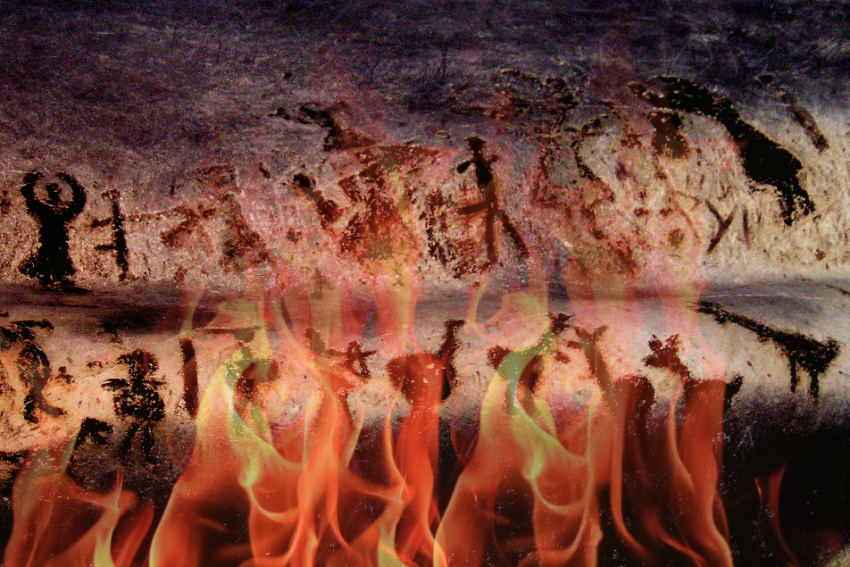At its core, Plato’s Allegory of the Cave presents people who see only part of reality, and mistake that part for the entirety of reality. What they see are shadows of objects. Because they cannot see the objects, they think the world consists only of shadows. The shadows are real. Nothing else is.
All of us are like those people.
Plato writes of adults, imprisoned since childhood, in a cave. Because their legs and necks are bound, they can only stare straight ahead. In particular, there’s a fire behind them that they cannot see. Between the fire and the prisoners, also unseen by then, is a walkway behind a low wall, where people acting as puppeteers carry various puppets of people and other living things. Because of the wall, only the puppets cast shadows. The prisoners see only the shadows of the puppets, hear only the sounds that bounce off the wall of the cave. Having no idea that reality extends beyond the shadows, the prisoners reasonably if wrongly assume that the shadows are the full extent of reality.
In short, the prisoners assume that reality is limited to what they can see.
All of us are limited to what we can see — either directly with our eyes, or, in this modern era of science, indirectly with detectors of various sorts. But the point remains the same. The sum total of what we can detect is nothing but shadows. We cannot detect reality.
This insight — surprising, disturbing, fascinating — should guide everything we do. Science is the study of shadows, not the study of what casts them.
It seems to me that even if this were all Plato wrote, he would still deserve a top spot among the promulgators of great ideas.
As it happens, Plato manages to include more in his allegory. By referring to the people as “prisoners,” he suggests they might escape.
Indeed, he suggests that a prisoner who did manage to escape from the dark cave to daylight might, once his eyes adjusted to the light, see reality. He would see that the shadows aren’t real.
Additionally, if he returned to the cave after his escape, he would no longer see the shadows, because he would have lost his night vision. He would no longer see the “reality” of the prisoners, just as the prisoners could never see (his?) reality. The prisoners would think him mad.
Plato seems to suggest that it’s possible to break free of illusion and see reality.
I don’t think so.
